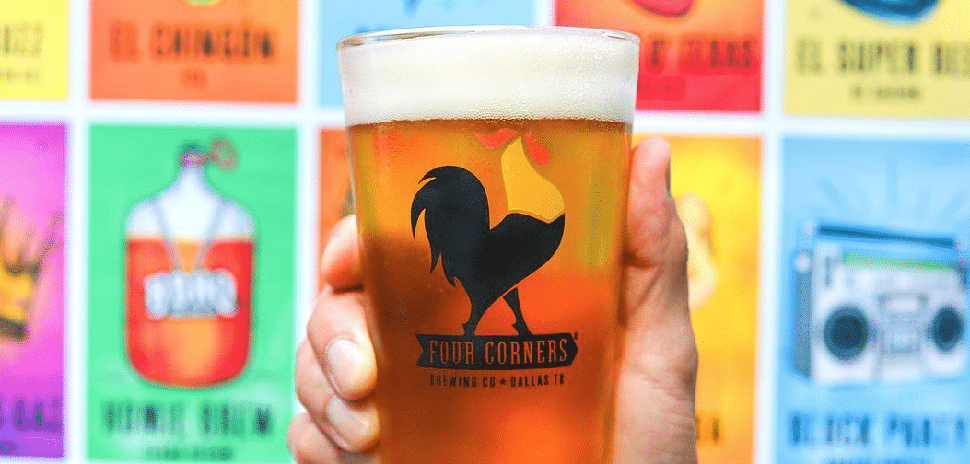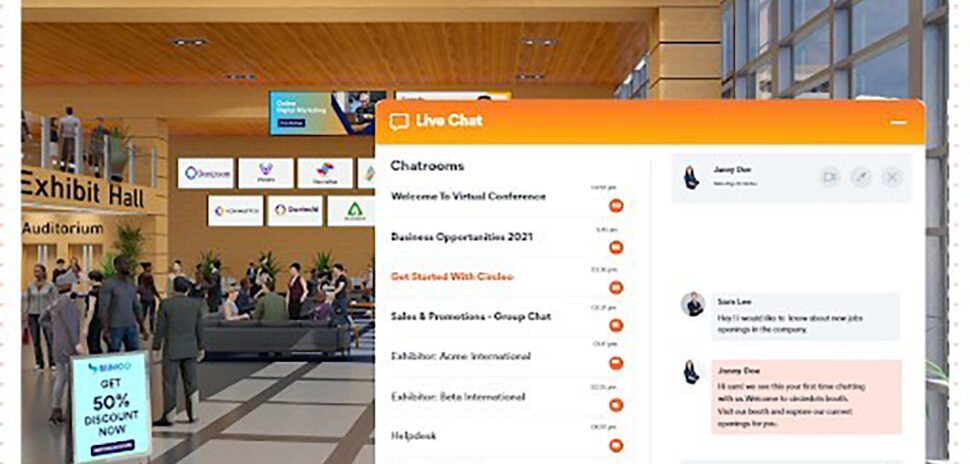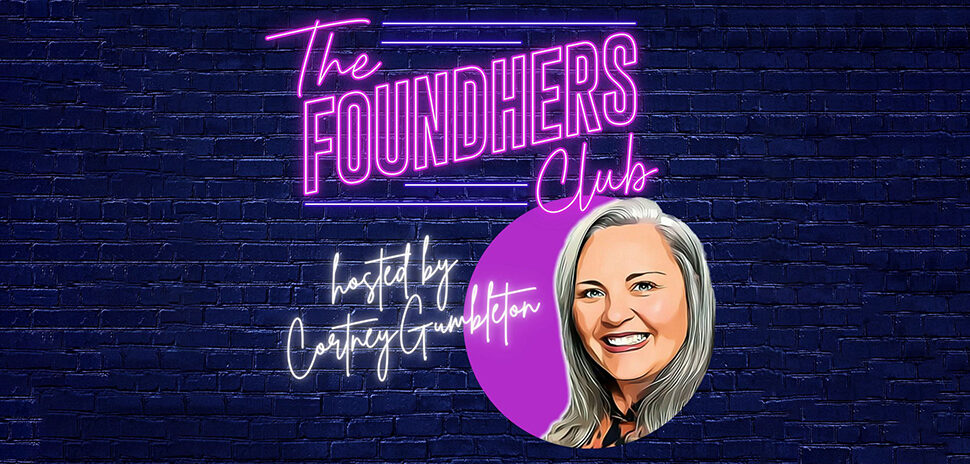Dallas-Fort Worth has a national reputation as a leader in the food and beverage sector. And with high-profile entrepreneurs Phil Romano and George Esquivel at the helm, a recent industry event turned into a 40-minute master class.
Romano and Esquivel talked with industry expert and investor Richard Riccardi about trends and challenges in the industry—and what it’s like to be a pioneering entrepreneur.
The event was hosted in support of the new Greater Dallas Food & Beverage CPG Community group. Enterprise players like Frito-Lay and law firm Polsinelli gathered with some 100 other players in the ecosystem— manufacturers, investors, and consultants—at Four Corners Brewery to talk about opportunities and synergies among the rapidly growing F&B/CPG sector in the region.
Riccardi kicked off the fireside chat.
Been there, done that
Romano came ready with stories (and jokes) as he shared a wealth of wisdom based on his own many experiences. The iconic innovator/restaurant mogul/author has served up a string of successful restaurant concepts, including Fuddruckers, Cozymel’s, Macaroni Grill, Eatzi’s, and Nick & Sam’s.
Romano’s most recent creations include Trinity Groves, a thriving restaurant and retail development in West Dallas that incubates new concepts, and the Network Bar, which has been likened to a “LinkedIn country club” for connections. He’s also published a book called The MAD Entrepreneur.
George Esquivel, co-founder of Four Corners Brewing, detailed his journey of creating a successful craft beer brand in Dallas. Four Corners was founded in 2012 by Esquivel, along with Greg Leftwich, and Steve Porcari. The trio capitalized on what craft beer publication Brewbound has called “one of the hottest trends in beer: Hispanic-influenced products.”
Four Corners, known for its lotería-style branding, was purchased in 2018 by Constellation Brands, the owner of the Corona and Modelo brands.
Problems = Opportunity
Romano and Esquivel had a lot to say, particularly on the characteristics that make a successful entrepreneur. Both were quick to point out that it’s key to notice and seize an opportunity.
“Being an entrepreneur, you have to be an opportunist. You can’t look around and think, what am I doing today?” Romano said. “No: You’ve got to find a problem. What’s a problem out there is a problem that needs to be solved.”
That’s what entrepreneurs do, the pair agreed: Solve problems.
“In the absence of sales, there is pain.”
Phil Romano
For Romano, he knew that he had to take control of his destiny and not let people make decisions for him.
“I try to make a difference in peoples’ lives,” he says, “It’s all about creating something people need, because the most important thing is sales.”
That sales lesson is part of the 101, because “in the absence of sales, there is pain,” Romano says, which was met with laughter.
But, Romano’s approach is based on what people want and need: “I never think about making profit. I think about doing something that people really need to have,” he said.
Follow a passion
Esquivel shared his thoughts from his experience of opening a craft brewery. For Esquivel that centered on passion.
“Follow a passion, learn more about it,” he says.
On Esquivel’s entrepreneurial journey, he spoke with people who were “more intelligent about beer,” but advises startups to “just have a lot of fun.” And to Romano’s point of pairing opportunity with problem-solving, he adds, “We saw the opportunity that was missing in DFW, and that had to do with the craft beer spirit.”
READ NEXT Innovative Spaces: The Food Industry in Dallas-Fort Worth
Esquivel was at what he calls “a transitional stage of life,” when decided to follow his passion.
“I saw an opportunity in the craft beer world, and it was really starting to increase,” he says. “I started brewing in the garage with my friends.”
Friends turned into partners, he says, and they had a collective mindset when it came to the kind of success craft beer could have in Dallas.
“What got us out of bed—what got us really motivated—was the fact that we were adding something to the culture of our hometown, and that’s always been the driver,” Esquivel says. “So from a partnership standpoint, it was really about like-minded individuals who could have conversations about culture, and what we are going to add to it.”
Then, Esquivel says, “we explored [how] we wanted to express ourselves to the market.”
Planning is vital
Both entrepreneurs noted that planning is vital to keep a company on track when dealing with partners or outside factors. “You’ve got to be ahead of the trend: It’s like a tidal wave coming. You can see it coming, and you’ve got to get in front of it,” Romano says.
“Start your business, get in front of it, and go with the flow,” he advises.
I’ll tell you what, my failures can be attributed to one thing: Piss-poor pre-planning. You’ve got to pre-plan this stuff.”
Phil Romano
But what about motivation?
For Romano, it’s not “the sweet small of success” that motivates, but “the fear of failure.”
Despite enormous successes like Nick & Sam’s and Eatzi’s, Romano admitted that while he prefers to learn from his triumphs, the pitfalls can also be very revealing.
“I like to learn from the successes. I’ll tell you what, my failures can be attributed to one thing: Piss-poor pre-planning. You’ve got to pre-plan this stuff,” he says.
Romano shared a story detailing the trials and tribulations from when he had an Eatzi’s in a New York City Macy’s to underscore that message: “Know your market. Know where it is and understand that you understand how to serve that market.” he advises. “And make sure your business is there.”
READ NEXT Innovative Spaces: The Food Industry in Dallas-Fort Worth
The pillars of success: Phil Romano’s “bill of rights”
Romano says he creates a “bill of rights” for each of his businesses. Each of that bill’s pillars is something integral to business success. Those pillars are so fundamental that if one of them changed, the business would go downhill, he says.
“Our North Star has always been well defined. We defined that really early.”
George Esquivel
Planning was also key on Esquivel startup agenda. “We spent considerable time talking about our concept: talking about what we stand for and what’s the “personality”—what it looks like, and what it feels like,” Esquivel says.
He describes a “mood board” the startup created as a tool for that. Esquivel made it clear that to make decisions, a brand as a whole has to be precise.
Four Corners got that right, he says. “Our North Star has always been well defined. We defined that really early,” Esquivel affirms.
Esquivel noted that past experience in consumer product goods allowed him to think and be knowledgeable about many different business aspects.
Experience counts.
“I know what I know, and I know what I don’t know,” Romano says.
Quincy Preston contributed to this report.
![]()
Get on the list.
Dallas Innovates, every day.
Sign up to keep your eye on what’s new and next in Dallas-Fort Worth, every day.

































































